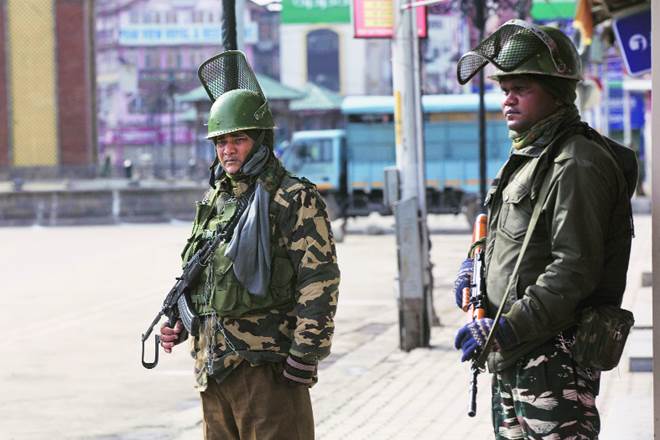In Tamil Nadu the festival is called Bhogi. In other parts of India it is called Lohri.
The harvest is imminent, it is time to honour the bulls and the cows and the ploughs, and it is time to celebrate with the farm hands. Before we celebrate the new dawn, we must throw out the old — used clothes, broken farm implements and useless knick-knacks that accumulated during the year gone by. We make a symbolic bonfire of them on Bhogi day. The next day is Pongal or Sankranthi, the harvest festival. The jallikkattu (taming the bull) is part of the celebrations in Tamil Nadu
‘Ring out the old, ring in the new’ captures the spirit of harvest time. On the eve of the Lok Sabha elections, I asked myself what can be thrown out before we welcome the next government. I was able to list a few.
Muscular Approach
Firstly, we must abandon the muscular approach to complex problems that cannot be resolved through a show of the might of the State. In Jammu and Kashmir, the muscular approach has acquired an ominous dimension: it is muscular, militaristic and majoritarian, alienating a whole population and driving young men to embrace militancy. A fine young man, topper of the IAS batch of 2010, resigned from the service in frustration and despair. In the Northeastern states, the muscular approach accelerated the preparation of the National Register of Citizens (NRC) and left out, initially, 40,07,707 persons who found themselves ‘stateless’. The muscular approach is now forcing down the Citizenship Amendment Bill on the ethnic population because of misplaced concern for ‘persecuted minorities’ of other countries, notably Bangladesh. The muscular approach must go.
Secondly, we must repeal or re-enact laws that are unjust. Top of the list is Section 124A of the IPC that defines ‘sedition’. It must go lock, stock and barrel. The Armed Forces (Special Powers) Act that allows the use of force to ‘the point of causing death’ must be repealed or amended extensively. The Goods and Services Tax (GST) laws must be completely redesigned. If any one claims to have understood the text of the Central GST Act (in what is passed off as legal English language), that person deserves to be admitted to the Bar without the need to pass a law examination! The anti-profiteering provision in GST laws must go. The Angel tax on start-ups must go.
Discriminating
Against Poor
Thirdly, poorly designed and inherently discriminatory (against the poor) schemes must be scrapped and replaced by schemes that will deliver the intended outcomes. There is a long list: MUDRA loans, Swachh Bharat (Clean India) that builds toilets that are unused or unusable, Fasal Bima Yojana (Crop Insurance Scheme) that robs farmers and enriches the insurance companies, Kaushal Vikas Yojana (Skilling Programme) that is able to place only 28% of the trainees, and Ayushman Bharat (Health for All) that is underfunded and excludes the poor who have no access to private hospitals. You can add to the list based on your experience of the schemes that concern you. The grave flaws in these schemes must go.
Fourthly, the Aadhaar excesses must be reversed. The Aadhaar Act authorised the government to require Aadhaar only for transfer of ‘subsidies, benefits and services’. The government exceeded its authority, insisted on Aadhaar for many other activities and collected huge personal data. The illegally acquired data must go. How that can be done is a question that must be answered by the next government.
EVM vs Ballot
Finally, there are concerned citizens who want Electronic Voting Machines (EVMs) to go and to return to the ballot paper system. On the other hand, the Election Commission and the government swear by EVMs. I supported EVMs because of the ease of casting valid votes, but I was troubled by the numerous instances of malfunctioning EVMs. That led me to plead for VVPATs. Now, the counts of one EVM and one VVPAT (in each Assembly constituency) are matched. A constituency has, on average, 250-300 polling stations. Hence, the chances of discovery of mischief in the electronic units is less than 1%. I have, therefore, pleaded that the count of every EVM must be matched with the physical count of the VVPAT slips. The argument that counting — and declaration of results — will be delayed is a weak argument. Nothing will be lost if the results are announced three or four hours later if the gain is greater trust in the process of electronic voting.
I was confident that my — and others’ — suggestion will be a satisfactory answer to the demand for returning to ballot papers, but my enthusiasm has been dampened by Mr G Sampath’s brilliantly-argued piece in a newspaper (The Hindu, January 22, 2019). According to the author, the paper ballot system alone will satisfy the three tests of visual confirmation of the vote, secret ballot and visible counting. EVM-VVPAT system fails on all three tests as established by a judgment of the German Constitutional Court. It is difficult to disagree with the author or the German Court. So, while I cannot say EVMs must go, we should demand match of the counts in all polling stations.
If we can get rid of the dross, perhaps we can drink the water from the pool.
Website: pchidambaram.in
@Pchidambaram_IN


